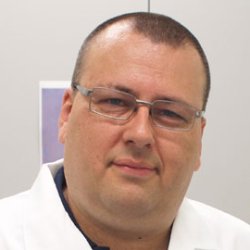The role of environmental fluoroquinolone contamination on development of antimicrobial resistance in Campylobacter jejuni in poultry
The project will attempt to assess the contribution of fluoroquinolone residues in rivers to the occurrence of fluoroquinolone-resistant Campylobacters in the environment, in wild birds and in poultry.
Start date
1 April 2023Duration
3.5 yearsApplication deadline
Funding source
Faculty of Health and Medical Sciences, University of Surrey and the Animal and Plant Health Agency.Funding information
Funding is for 3.5 years and includes UKRI-aligned stipend (£17,668 pa for 2022-23), approved University of Surrey fees and a research budget. This studentship is funded by Faculty of Health and Medical Sciences, University of Surrey and the Animal and Plant Health Agency.
About
Campylobacter is an important human gastrointestinal pathogen, which is gaining resistance to fluoroquinolone antibiotics, which are regarded as critically important by the World Health Organisation. Poultry are a major source of campylobacteriosis and present a dissemination risk for fluoroquinolone-resistant Campylobacter to the public. Many watercourses are contaminated with fluoroquinolone from sewage and other waste-water sources. Monitoring for fluoroquinolone-resistant Campylobacter in UK poultry continues to report a high prevalence despite a major reduction in the use of fluoroquinolone antibiotics in poultry production in recent years. In many countries where there is no fluoroquinolone used in poultry production resistance is still detected in Campylobacter, suggesting there are other influencing factors. The widespread and persistent occurrence of fluoroquinolones in wastewater discharged to the environment provides a possible contributory factor accounting for the inexorable global rise of fluoroquinolone resistance in Campylobacter.
The project will attempt to assess the contribution of fluoroquinolone residues in rivers to the occurrence of fluoroquinolone-resistant Campylobacters in the environment, in wild birds and in poultry. Campylobacter can survive for up to 3-4 weeks at 4˚C, and poultry-associated isolates of Campylobacter can co-exist in ducks together with host-specific Campylobacter isolates. There is therefore the potential opportunity for agriculture or human-derived Campylobacter isolates to cycle through wild birds with concurrent exposure to fluoroquinolone in watercourses and subsequent resistance development. We hypothesize that Campylobacter occurrence in the wild bird population will precede appearance in the poultry flocks and will test this hypothesis. This work has expected benefits at the UK and global levels and outputs will therefore have high relevance within UK and internationally.
The project will be conducted at the University of Surrey, under the supervision of Dr. Arnoud van Vliet, Dr Gianni Lo Iacono and Dr Jai Mehat at the Schools of Veterinary Medicine and Biosciences, and Dr John Rodgers from the Bacteriology and Food Safety Department at the Animal and Plant Health Agency (APHA), with access to other core facilities at the University of Surrey and APHA. The student will benefit from laboratory and bioinformatic research resources at the UoS Vet School and APHA, and will be embedded in a supportive and thriving research environment with ample opportunities for collaboration, skills acquisition and personal development.
References
van Vliet AHM, Thakur S, Prada JM, Mehat JW, La Ragione RM (2022) Genomic Screening of Antimicrobial Resistance Markers in UK and US Campylobacter Isolates Highlights Stability of Resistance over an 18-Year Period. Antimicrob Agents Chemother 66(5):e0168721. doi: 10.1128/aac.01687-21.
Food Standards Agency report: Levels and trends of antimicrobial resistance in Campylobacter spp. from chicken in the UK. https://doi.org/10.46756/sci.fsa.dud728
Wales AD, Vidal AB, Davies RH, Rodgers JD (2019) Field Interventions Against Colonization of Broilers by Campylobacter. Compr Rev Food Sci Food Saf. 2019 Jan;18(1):167-188. doi: 10.1111/1541-4337.12397.
Eligibility criteria
Open to UK students with the project starting in April 2023.
You will need to meet the minimum entry requirements for our PhD programme https://www.surrey.ac.uk/postgraduate/veterinary-medicine-and-science-phd#apply
How to apply
Applicants are strongly encouraged to contact the relevant principal supervisor(s) to discuss the project(s) before submitting their application.
Applications should be submitted via the https://www.surrey.ac.uk/postgraduate/veterinary-medicine-and-science-phd programme page (N.B. Please select the April 2023 start date when applying).
When completing your application, in place of a research proposal, please provide a brief motivational document (1 page maximum) which specifies:
- the project title(s) and principal supervisor name(s)
- an explanation of your motivations for wanting to study for a PhD
Additionally, to complete a full application, you MUST also email a copy of your CV and 1-page motivational document directly to the relevant project principal supervisor of each project you apply for. Due to short turnaround times for applicant shortlisting, failure to do this may mean that your application is not considered.
Please note that online interviews for shortlisted applicants are expected to take place during the week commencing the 6th of March 2023.
Veterinary Medicine and Science PhD
Studentship FAQs
Read our studentship FAQs to find out more about applying and funding.
Application deadline
Contact details
Contact details: a.vanvliet@surrey.ac.uk, John.Rodgers@apha.gov.uk

Studentships at Surrey
We have a wide range of studentship opportunities available.


